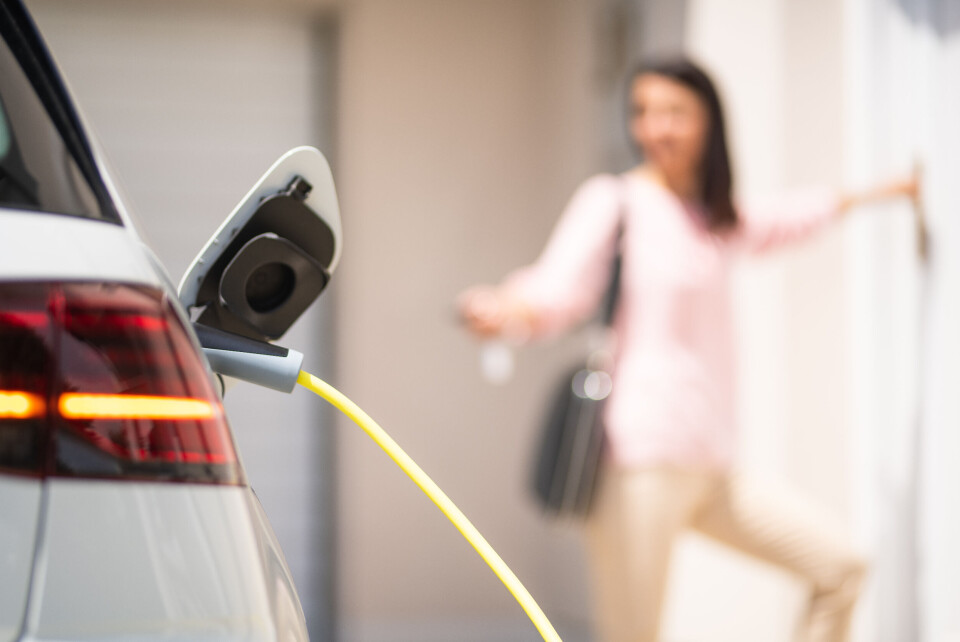-
Can you vote by proxy in French elections?
French and EU citizens are eligible to vote in municipal elections
-
What are penalties for not conforming with new septic tank request?
Some financial aid is available for homeowners needing to install new tanks
-
How can I reduce my wife's admin after my death in France?
Specialist UK firms can help ease things along and liaise with the notaire
What aid is available for electric cars and charging points in France?
People buying electric vehicles can benefit from various government aids, although some are only available until June 2022

What financial aid is available for people wishing to buy an electric car in France and what are the options for installing charging points at my house?
The French government has introduced financial incentives for those looking to buy an electric vehicle and to install associated charging points at their home.
Financial aids for buying a vehicle
Until June 30, 2022, there are two types of grant that people buying an electric car in France can access.
The Bonus écologique is available for cars with CO2 emission levels below 50g per km and hydrogen-powered vehicles costing more than €60,000.
It is not means tested and will cover 27% (up to a limit of €6,000) of the cost of a vehicle priced at less than €45,000.
For an electric vehicle that costs €45,000-60,000 or a hydrogen-powered car costing more than €60,000, the bonus is capped at €2,000.
For a hybrid vehicle that costs less than €50,000, and can travel at least 50km powered by electricity alone, the bonus available is €1,000.
People who receive this bonus must keep their vehicle for at least six months and drive at least 6,000km in it before selling it on.
The second aid, prime à la conversion, enables owners of older, more polluting vehicles to buy a more efficient replacement.
This aid is means-tested and the buyer’s taxable income must be less than €13,489 per ‘family quotient part’ in their household to qualify.
You can use the government’s online calculator to determine how many ‘parts’ there are in your household.
The prime à la conversion can cover up to 80% or €5,000 of the price of an electric or hybrid vehicle which can run for at least 50km on electricity.
However, to be eligible for the maximum grant, your income per part must be less than €6,300, you must travel more than 12,000km per year on your commute to work and your workplace must be more than 30km away from your place of residence.
The funding available for those who do not fulfil all of these criteria is capped at €2,500.
Hybrid vehicles that cannot run for at least 50km on electricity are eligible for an aid of €3,000 when their owner fulfils the above criteria, or €1,500 if they do not.
Car owners can also access financial aid to convert their older, combustion engine vehicle into an electric vehicle.
This is called a prime au ‘rétrofit’ électrique and it is only available if the work is carried out by a qualified professional.
To qualify for the maximum grant – up to 80% or €5,000 of the price of the vehicle – the owner must fulfil the criteria detailed above.
Those who do not fulfil these requirements can only access a maximum of €2,500.
Read more: Guide: what aid can I get to buy an electric car in France
Installing charging points
Around 90% of electric vehicle charging takes place at the owner’s home or workplace, rather than at a public charging point, according to the Association pour le développement de la mobilité électrique (Association for the development of electric mobility).
It is possible to charge your electric vehicle using a traditional plug socket and a special “Mode 2” cable, but this method lengthens the time needed for recharging.
It is therefore recommended to use a specific type of electric vehicle power outlet or a Wallbox.
You can have a dedicated home charging point installed on an outside wall of your home or in your garage by a specialist electrician.
The reinforced power outlet will be able to recharge a 50kWh car battery in 15 hours, and will cost around €500 to install.
However, charging times will be quicker if you use a Wallbox (borne de recharge), which can get a car battery to full in two hours if the vehicle permits charging at 22kW.
If it does not, charging at 7.4kW will take about seven hours.
Wallboxes can often be set to charge at certain times, so that people who are on tarification dynamique electricity tariffs whose rates vary throughout the day can avoid peak charge times.
The devices can also drop out when several electrical devices are being used at the same time so keeping the household’s usage below a certain level.
Wallboxes are therefore more efficient but also more expensive to set up, with the total price of the equipment and the installation coming in at around €1,000-€1,500.
People whose home is within an apartment complex or has a shared car park can request that shared charging points be installed in the parking area by writing to the managing office and the owner if they are a tenant.
Since 2017, new-build condominiums must have charging stations in their car parks.
Those fitting charging points at their house or flat can benefit from tax credits to contribute to the cost of installation, whether they own, rent or live free of charge in their property.
For charging stations created between January 1, 2021 and December 31, 2023, the tax credits are not means tested.
The sum available amounts to 75% of the price of the equipment and installation, up to €300, and can be applied to second homes as well.
For further information on the types of charging points eligible for this tax credit, please consult the service-public.fr page on the subject.
Those who live in a collective housing unit such as an apartment block can also benefit from the Advenir grant from the Association pour le développement de la mobilité électrique.
The charging point must fit certain criteria and the resident must buy it through an offer advertised by the Advenir scheme.
A single user can access a grant equating to up to 50% of the cost of the charging station, as long as this figure is inferior to €960.
If you prefer to charge your vehicle at public charging points, Chargemap can help you to find the stations situated on roads around France.
Related stories
New help-to-buy scheme for ‘green’ vehicles in Ile-de-France
























